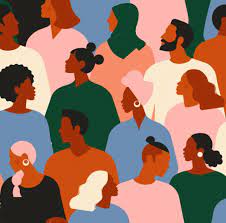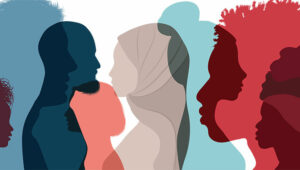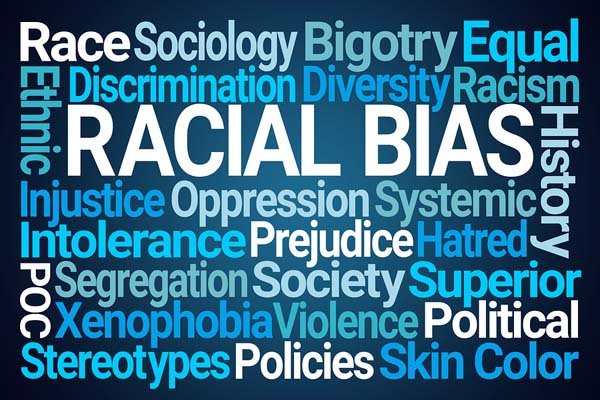Racism can take many different forms, from intentional discrimination and bigotry to institutional policies that limit access to education, housing, or healthcare. Any time someone experiences discrimination or prejudice based on their race or ethnicity, they are experiencing racialized trauma. This type of trauma can have a devastating effect on individuals and communities, leading to lowered self-esteem, increased rates of mental illness, and even violence. Everyone needs to understand what racialized trauma is and why we should care about it.
Contents
What Is Racialized Trauma?
Trauma resulting from difficult experiences that arise from one’s race is typically known as racialized trauma. These experiences are inflicted upon racial/ethnic minorities. They are exposed to discrimination on social/academic/professional fronts because of their race. These brutalities lead to traumatic events which have severe impacts on people’s mental and emotional well-being
Causes Of Racialized Trauma

There are many different causes of racial trauma, but some of the most common include:
- Bigotry in the form of activities such as upholding stereotypes, practicing exclusion, and saying slurs, among other activities.
- Institutional policies that limit access to education, housing, or healthcare. Some policymakers themselves have prejudices against racial minorities which further lead to oppression and stereotypical discrimination.
- Violence against people of color. This can happen in the form of caste/race-based attacks, mob lynching, gun violence, targeted bullying, and assault.
- Exposure to media images that portray people of color in a negative light. TV shows and movies contribute a lot to the way we shape our perceptions of the real world. The most commonly affected groups because of this portrayal include Muslims and Africans.
Who Does It Effect?
For racial and ethnic minorities, the existence of race-based disparities exists in every sphere of life.
- Studies have shown that children as young as 12 years old are subjected to racial discrimination within the existing education systems. It can also affect bi-racial or multi-raced individuals.
- Scholars and researchers have conceptualized the idea of intersectionality to identify the intensity of actions this oppression has. These factors include co-existing characteristics like economic status, gender, and class, among others.
- For example, A poor and homeless black woman is likely to face more disparities than a wealthy and high-profile Mexican man.
- The micro-aggression and discrimination do not just impact individuals who experience it firsthand. It can also have a ripple effect on families, friends, and even entire communities.
- When someone experiences racial trauma, it can lead to them feeling isolated, depressed, and anxious.
- Racial trauma can also be intergenerational, meaning it can affect multiple generations. You might experience racial trauma if an ancestor experienced ongoing racism, especially through things like genocide, slavery, or internment camps.
Signs Of Racialized Trauma
Although there are no specified tell-all signs to feel the significant presence of race-based trauma, some commonly observed behaviors indicate the presence of trauma stemming from racial indifference. Some of them include:
- feeling socially excluded around peers/professionals because of racial factors
- being a victim of racially insensitive jokes stereotypes being passed on as ‘jokes’
- facing inequality in terms of accessing public services and facilities
- observing the rise in race-based hate crimes, which further lead to an increase in paranoia,
Effects Of Racialized Trauma

The effects of racial trauma can be far-reaching and devastating. Some of the most common effects include:
- Lowered self-esteem; leading to inferiority complex
- Poor quality of living
- Fear of authorities like police, law, governing bodies, etc.
- Feeling hopeless about the future
- Unequal distribution and access to resources and/or facilities
- Increased vulnerability to substance abuse
- Hypervigilance and constantly feeling like you’re on “edge”
- Strained relationships with family or peers
- Reduced social interactions and peer support
- Emotional problems like lack of trust, disassociation, social isolation
- Physical symptoms such as cardiovascular diseases, hypertension, migraines, and panic disorder, among others.
Racialized Trauma And Mental Health
To study the effect of racial trauma on mental health, it becomes crucial to study the historical and present relevance of this form of oppression.
- Being repeatedly exposed to race-based trauma can lead to increased stress. This stress, if left untreated, can lead to the development of stress and mood disorders like Post Traumatic Stress Disorder(PTSD), generalized anxiety disorder, and depression. Other stressful outcomes of this negative social exposure moreover include short temper, paranoia, being easily scared, hyperactivity, and flashbacks.
- In severe cases, suicidal indications and tendencies take a significant rise.
- Due to the increased vulnerability in terms of lacking mental support, an individual may turn to intaking drugs and alcohol as coping mechanisms.
- The Diagnostic and Statistical Manual of Mental Disorders, Fifth Edition (DSM-5) limits the recognition of racial stressors when talking about stress-related disorders. However, these factors are typically described as frightening, dangerous, or upsetting in psychological terminology.
How To Cope With Racialized Trauma?

Although a person may not always feel ‘cured’, finding the right support system and coping strategies can provide for a sense of understanding and reliance. If you or someone you know is struggling with racialized trauma, there are some things you can do to help.
For Victims
- The first step to addressing racialized trauma is acknowledging that it exists. Only then can we begin to have the necessary tough conversations
- Talk to someone who understands what you’re going through. Having social and emotional support enhances positivity.
- Engage in healthy coping mechanisms such as exercising, journaling, or spending time in nature.
- Seek out community resources and support groups.
- Educate yourself and others about racism and its effects on individuals and communities.
- Seeking therapy from a trauma-informed mental health practitioner can help in managing your stress and symptoms.
- Joining in protests, fundraisers, and community events also enhances the sense of social solidarity.
For Allies
- It becomes important to acknowledge that racism has its roots in centuries of systematic oppression. As individuals, there is little to nothing we can do to eradicate long continuing social systems. As allies, it is important to set realistic expectations about the type of help you can offer.
- Advocating and spreading awareness among local groups is a key step to ensuring inclusion and participation.
- Read, learn and expand your awareness through books, podcasts, social media, and further interactions with people who have experiences of the same.
- Be mindful of the language and behavior you use while initiating conversations.
- Being empathetic is more important than being sorry or pitiful.
Conclusion
Racialized trauma is a serious issue. It can have moreover a profound impact on individuals, families, and communities. If we want to create a more just and equitable society, we need to start by recognizing the existence of racialized trauma and working to address it. Hence, if you or someone you know is struggling with racialized trauma, there are many resources available to help.
A Word From Therapy Mantra
Your mental health — Your psychological, emotional, and social well-being — has an impact on every aspect of your life. Positive mental health essentially allows you to effectively deal with life’s everyday challenges.
At TherapyMantra, we have a team of therapists who provide affordable online therapy to assist you with issues such as depression, anxiety, stress, workplace Issues, addiction, relationship, OCD, LGBTQ, and PTSD. You can book a free therapy or download our free Android or iOS app.


